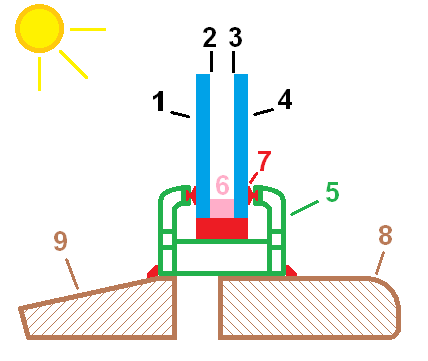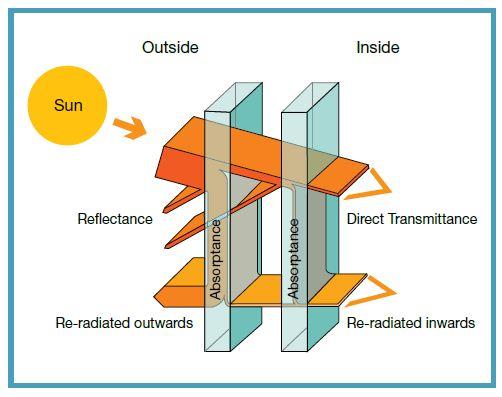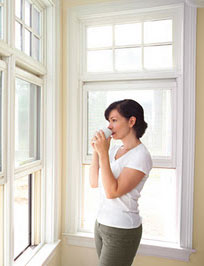Why Double Glazed
Insulated Glass Units are manufactured with glass in range of thickness from 3 mm to 10 mm (1/8″ to 3/8″) or more in special applications. Laminated or tempered glass may also be used as part of the construction. Most units are manufactured with the same thickness of glass used on both panes but special applications such as acoustic attenuation or security may require wide ranges of thicknesses to be incorporated in the same unit.
Heat insulating properties
Additional layers of glazing provide the opportunity for improved insulation. While the standard double glazing is most widely used, triple glazing is not uncommon, and quadruple glazing is produced for very cold environments such as Alaska. Even quintuple glazing (four cavities, five panes) is available – with mid-pane insulation factors equivalent to walls.
working capabilites
In some situations the insulation is in reference to noise mitigation. In these circumstances a large air space improves the noise insulation quality or Sound transmission class. Asymmetric double glazing, using different thicknesses of glass rather than the conventional symmetrical systems (equal glass thicknesses used for both lites) will improve the acoustic attenuation properties of the IGU. If standard air spaces are used, sulfur hexafluoride is used to replace or augment an inert gas and improve acoustical attenuation performance.
Double Glazed Glass Longevity
The life of an IGU varies depending on the quality of materials used, size of gap between inner and outer pane, temperature differences, workmanship and location of installation both in terms of facing direction and geographic location, as well as the treatment the unit receives. IG units typically last from 10 to 25 years, with windows facing the equator often lasting less than 12 years. IGUs typically carry a warranty for 10 to 20 years depending upon the manufacturer. If IGUs are altered (such as installation of a solar control film) the warranty may be voided by the manufacturer.
Double Glazed Disadvantages
1. Can’t be repaired. The space between the two panes of glass traps air, forming a layer of insulation. If the seal isn’t airtight, condensation will appear between the panes. Once sealed, the panes can’t be pulled apart and repaired. The window will have to be replaced. 2. Trap heat. During the winter months, the heat trapping benefit is an advantage, but during the summer months, trapping heat inside can lead to a stuffy and uncomfortable room. Many homeowners tint the windows to block the heat, but this added feature will costs extra. 3. Not a good match for older homes. Double glazed windows are modern looking, so they can clash with older styles. And if a homeowner decides not to replace every windows with double glazed windows, the overall appearance of the home will look mismatched.
Double Glazed Advanteges
1. Energy cost savings. The airtight construction of double glazed windows creates thermal insulation. This reduces the flow of incoming and outgoing heat. Less energy is used to heat up or cool down the space, resulting in lower energy bills. 2. Sound insulation. Double glazed windows improve sound insulation by creating a barrier between the home and the environment outside. 3, Safety. Double glazed windows are tougher to break than single pane windows, so they increase the security of the home. Because they’re sealed tighter than other windows, it is also tougher to force them open from the outside.. 4. Limited condensation. Moisture on a warm surface forms droplets of water, which freeze into frost. This can make the room feel colder, which forces the people inside to adjust the heat. The air between the two panes of glass, plus the airtight seal, prevents condensation from building up by blocking moisture in cold weather. 5. Reduce damage to furnishings. Double glazed windows can reduce the amount of sun and heat entering the room. This can help reduce sun damage to your paintings, furniture, carpet, and other objects around the home.



